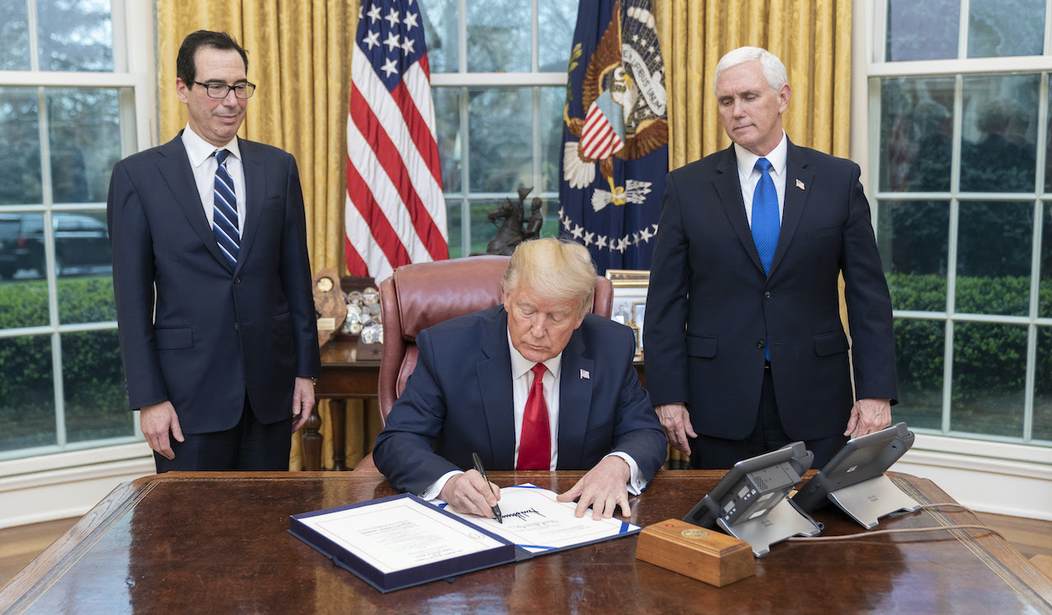Politics and bureaucracy make a terrible combination but too often they are mixed together. The results are usually a nightmare.
In March, the federal bureaucracy was tasked with performing a minor political task: send a trillion dollars in stimulus checks to every American. The money was appropriated in record time — a massive $2 trillion boondoggle known as the CARES Act. Politicians discovered that America was in an economic crisis and rushed to send cash to everyone — even if they really didn’t need it.
As it turns out, more than a million people didn’t need it — or anything else. They were dead. But the IRS sent them checks totaling $1.4 billion anyway, presumably so they’d be well-financed in the afterlife.
More than a million Americans who had died received COVID-19 stimulus payments totaling $1.4 billion, a government watchdog said in a report to Congress released Thursday.
The finding is part of a sweeping review of the federal government’s response to the COVID-19 pandemic by the Government Accountability Office, an independent nonpartisan congressional agency. The report paints a clearer picture of what critics called a muddled rollout by the Internal Revenue Service and the Treasury Department of more than 160 million payments worth $269 billion.
How did this happen? It’s too easy to simply say, well it’s a government operation. Instead, what happened is that the IRS, in its eagerness to do the bidding of its masters in Congress, sent out all that money using an older check system.
GAO’s report said Treasury officials said that, to meet the CARES Act’s mandate to deliver payments as “rapidly as possible,” Treasury and the IRS sent out the first three batches of payments using previous operational policies and procedures for stimulus payments “which did not include using [Social Security Administration] death records as a filter to halt payments to decedents.”
And no IRS employee bothered to mention to their superiors that the agency was probably going to send money to people who were dead? Or perhaps they just forgot the Social Security “filter” of death records.
Haste makes waste.
In this case, the waste went beyond a bureaucratic mistake and rose to the level of incompetence.
There was an initial backlog when the IRS began sending the first round of payments and relatives of dead Americans all over the country said they received coronavirus relief payments from the on behalf of the loved one. Families initially believed they could keep the payments, but the IRS updated its guidance in May to say that people who have died do not qualify for the coronavirus relief payments and “should be returned to the IRS.”
The GAO said in its report that the IRS does not currently have a plan in place to notify ineligible recipients, which includes the relatives of the almost 1.1 million deceased Americans who received a payment as of April 30. The watchdog agency said the IRS should consider “cost-effective options” for notifying ineligible recipients on how to return payments, which IRS agreed to do.
It’s probably safe to say that money has already been spent and it would be politically unpopular to dock people’s tax refunds to reclaim it. That money is gone.
Democrats, of course, passed a $3 trillion stimulus bill that includes payments to anyone and everyone — probably including dogs and cats. Donald Trump, falling in the polls, after initially being dubious, now thinks it’s a grand idea. So we can probably look forward to more examples of why politics and bureaucracy should never mix.
Biden Cancer Charity Paid Execs Millions, But Didn’t Spend Much Fighting Cancer










Join the conversation as a VIP Member